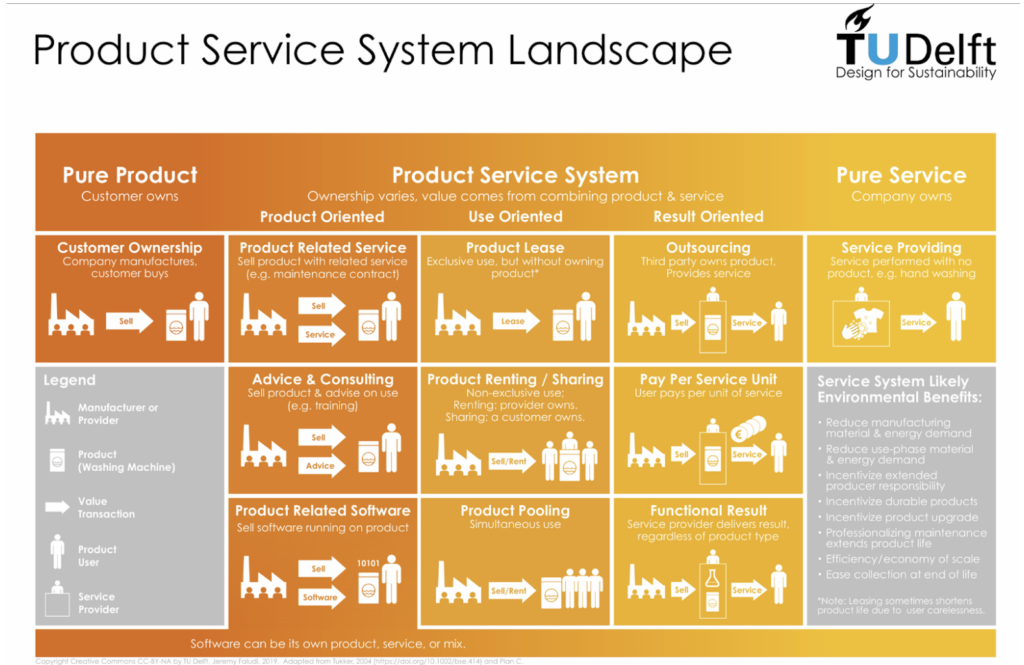A massive shoutout to the organizers at GreenBiz for putting on such a fantastic event!
I took so many good notes and made even more connections with peers leading the charge in the circular economy.
Here is a sneak peek into my notes from the conference as it relates to business models, the product service system landscape, engaging stakeholders, embracing technology, and the challenges and opportunities ahead of us going forward.
Business Models:
- Importance of leveraging marketing and customer engagement to understand customer demand and position for success.
- Challenges of pilot programs and scaling them effectively.
- Collaboration between different industries (e.g., using waste from one as input for another).
- Reuse, Resale, take-back programs, and product-as-a-service models.
- Product Service System
Product Service System Landscape:
- Pure product – Company manufacturers, customer buys
- Product service systems – Ownership varies, value comes from combining product & service
- Product oriented – Product related service, advice & consulting, Product related software
- Use oriented – Product lease, Product renting/sharing, Product pooling
- Result oriented – Outsourcing, Pay per service unit, Functional result
- Pure service – Pure Company ownership, service performed with no product

Stakeholder Engagement:
- Getting buy-in from CEOs, CFOs, CMOs, and other key decision-makers.
- Importance of clear communication and setting realistic expectations for pilots.
- Roughly 1/3 of pilots make it to scale, 1/3 need to stay in the pilot stage longer, and 1/3 do not proceed forward.
- Importance of qualitative KPIs in addition to quantitative KPIs to measure Pilot success to ensure Pilots don’t end prematurely.
- Scaling pilots requires change management and collaboration between different company departments (e.g., marketing, engineering, sustainability).
Technology:
- Connecting the physical product to its digital identity is critical to enabling AI to track materials, monitor waste, and sort/recover materials.
- The potential of data to create a carfacts report or zillow like report for products, tracking their history and materials.
- Leveraging technology to understand material use to inform improved design.
Challenges and Opportunities:
- Difficulty in recycling composite materials and the importance of design for sustainability.
- It is important to consider the material use phase, extending the lifespan alongside energy efficiency.
- Potential cost-savings and brand loyalty benefits of circular models.
- Need for policy changes to support circularity (e.g., Extended Producer Responsibility).
- Knowledge gaps in areas like data management and consumer behavior.
And finally, I want to give a big shout out to the amazing speakers I saw at Circularity:
Mikhail Davis
Kellie Ballew
Brent Trenga
Sara Neff
Dennis Wilson
Caol Shu
Danielle Azoulay
Emily Gittins
Peter Whitcomb
Jason Brown
Jennifer Reece
Garr Punnett
Tyrone Ellis
Dennis Linehan
Katie Chapman
Eric Doyle
Alessandra Pistoia
Tasha Jackson
Deanna Bratter
Blythe Chorn
Jaden Barney
Candi Hampton
Shane Gillies
Carolina Montana Owen
And, of course, our very own Garry Cooper. You can read about themes from his keynote address on his LinkedIn newsletter.


